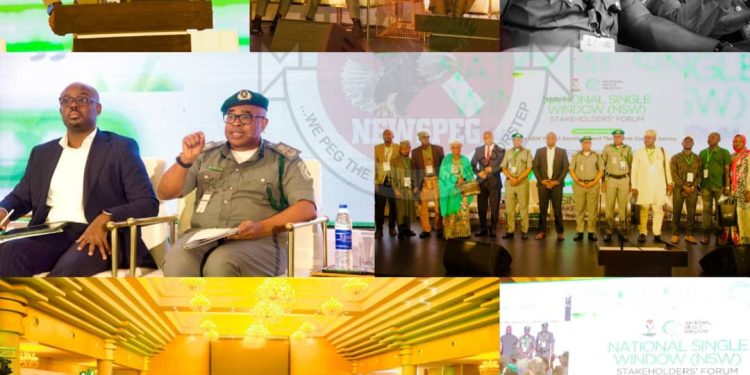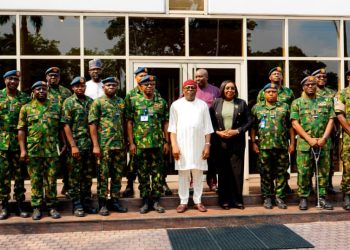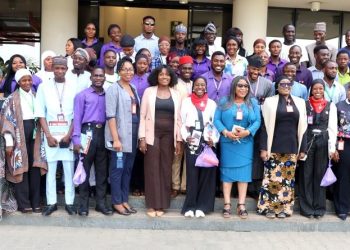By Nkechi Eze
The Nigeria Customs Service (NCS) has reaffirmed its commitment to modernizing the nation’s trade processes through the implementation of the National Single Window (NSW) initiative and has called on all stakeholders to demonstrate collective responsibility toward its success. The call was made by the Zonal Coordinator for Zone ‘A’, Assistant Comptroller-General (ACG) Mohammed Babandede, during the National Single Window Stakeholders’ Engagement Forum held in Lagos.
The high-level forum, jointly organised by the National Single Window Project Secretariat and the Nigeria Customs Service, brought together key players from government agencies, the import and export sectors, and trade associations to deliberate on the future of Nigeria’s digital trade ecosystem and the seamless integration of port operations.
In his opening remarks, ACG Babandede underscored the importance of collective ownership of the project, noting that the success of the National Single Window would depend on the active participation, adaptability, and shared vision of all stakeholders.
“The success of this project does not rest on the shoulders of the government alone. It requires all of us in this room to play our part. It requires openness to change, willingness to adopt new ways of working, and patience as we navigate the inevitable challenges that come with any major transformation,” he stated.
He explained that the full implementation of the platform would not only streamline Nigeria’s import and export procedures but also boost competitiveness, efficiency, and predictability across the trade sector. “You will agree with me, the more we make our ports efficient, the more they will be competitive. And so also manufacturers and stakeholders will be able to predict what will be the outcome,” Babandede added.
The Director of the National Single Window Project and Head of the Secretariat, Tola Fakolade, highlighted the strategic importance of the stakeholder engagement as the project approaches the launch of its first phase. She stressed that inclusive dialogue and understanding among stakeholders are critical to ensuring the platform’s long-term sustainability.
“As we are getting close to the launch of the first phase of this project, this is very important to ensure that all our key stakeholders really understand the scope of what we are doing and how this project is going to impact what they do,” Fakolade stated.
Delivering the keynote address, the Registrar and Chief Executive Officer of the Council for the Regulation of Freight Forwarding in Nigeria (CRFFN), Kingsley Igwe, emphasized that the National Single Window is central to Nigeria’s full integration into the African Continental Free Trade Area (AfCFTA). He explained that the initiative would harmonize trade processes in line with global best practices and strengthen Nigeria’s position within the continental market.
“The National Single Window has become imperative for Nigeria to fully participate in AfCFTA by ensuring our trade processes align with continental and global standards,” Igwe noted. “These practices include reducing costs and integrating free trade agreements into the National Single Window system through the B’Odogwu platform of the Nigeria Customs Service to enhance effective classification and duty payments.”
The engagement featured a robust panel discussion on global benchmarking, coordination, and cooperation among trade actors. Participants also engaged in an interactive question-and-answer session with project leaders, providing insights and feedback to support a smoother rollout of the system.
The National Single Window platform, when fully operational, will allow importers and exporters to submit all required trade documents through a single digital portal that links all relevant government agencies. The innovation is expected to drastically cut down on paperwork, eliminate duplication, reduce costs, and minimize delays in the clearance process — a major step toward trade facilitation and efficiency at Nigeria’s borders.
According to the project timeline, the first phase of the National Single Window is scheduled for launch in March 2026, while the second and third phases are projected to be completed before the end of the year.
The forum concluded with a shared sense of optimism, as stakeholders pledged their support for the initiative, recognizing it as a transformative step toward positioning Nigeria as a leading trade hub in Africa.

















